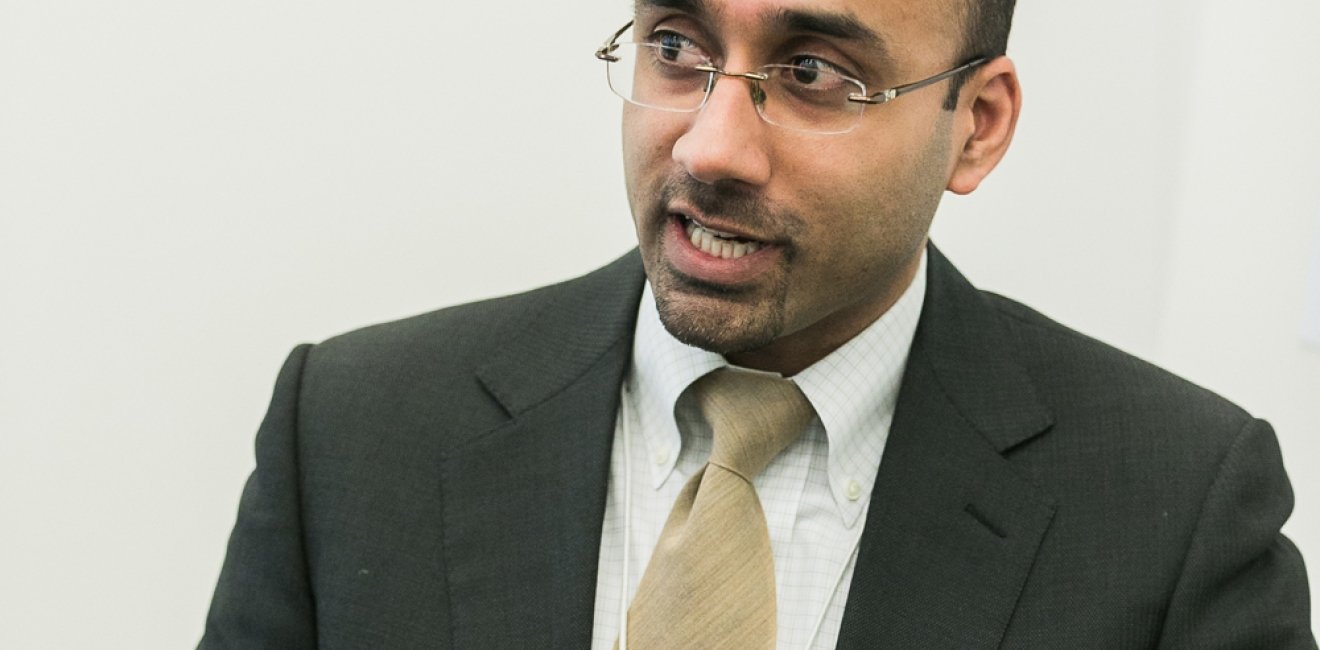
A blog of the Indo-Pacific Program
One month into its term, Pakistan’s new government has experienced its first crisis.
It’s not about economics, even though many analysts had predicted that worsening balance of payments problems would constitute the Pakistan Tehreek-e-Insaf (PTI)-led administration’s first test. Nor does it have anything to do with foreign affairs, even as Pakistan’s relations with Washington and with its Indian and Afghan neighbors continue to struggle.
Instead, it revolves around a personnel decision.
One of the new government’s first moves was to establish an Economic Advisory Council. The idea—a wholly well-intentioned one—was to recruit Pakistan’s best and brightest to advise Islamabad on the country’s mounting economic challenges. The government brought in a number of top economists, including world-renowned scholars based overseas. One of them was Atif Mian, a Princeton economist.
The idea...was to recruit Pakistan’s best and brightest to advise Islamabad on the country’s mounting economic challenges.
And yet, soon after Mian joined the prestigious new body, the government announced on Twitter that the scholar had been “asked to step down.” Mian himself confirmed on Twitter that he resigned “as the Government was facing a lot of adverse pressure regarding my appointment from the Mullahs.”
Mian is a member of the Ahmadi community, a religious minority that is heavily discriminated against in Pakistan. Religious hardliners in Pakistan, many of whom denounce Ahmadis and sometimes call for their deaths, pressed the government to force him out. And that’s apparently exactly what Islamabad did.
The decision sparked an uproar on social media in Pakistan. Even conservative commentators and PTI supporters railed against the move. Economists from around the world also condemned the decision. The crisis worsened when two other prominent Pakistani economists—Asim Khwaja of Harvard and Imran Rasul of University College, London—resigned from the Council in protest about the treatment of Mian.
This is not just another case of state-sponsored religious discrimination in Pakistan, of which there are sadly many examples. Rather, the government’s decision to remove Mian could come back to haunt the PTI in a big way.
First, there could be costly political consequences. Vocal PTI supporters expressed their vociferous opposition to the decision on Twitter. Commentators aligned with the Pakistani Army—a close ally of the PTI—also weighed in with their opposition. What made the decision particularly embarrassing for the government was that in the days leading up to Mian’s removal, top officials had offered public assurances that religious minorities would be treated well in Pakistan with the PTI in power.
Second, Mian’s removal could undercut the government’s efforts to address Pakistan’s economic challenges. Mian’s expertise includes debt, one of Pakistan’s biggest concerns, and particularly as billions of dollars in Chinese loans pour into the country for Beijing’s China-Pakistan Economic Corridor, a part of its broader Belt and Road Initiative. And the losses of Khwaja and Rasul will further deprive the much-ballyhooed EAC of much-needed expertise.
Pakistan’s troubled global image—a frequent source of anxiety for Pakistani officials—has taken another hit.
Third, Pakistan’s troubled global image—a frequent source of anxiety for Pakistani officials—has taken another hit. Mian’s international prominence ensures that the world—and particularly his fellow academicians in the West—will take note of what happened to him. The optics are dreadful: The Pakistani government, pressured by religious hardliners, prioritized religion over merit and prevented one of Pakistan’s most high-achieving economists from serving his country and tackling one of its biggest challenges—and a challenge that he is uniquely qualified to tackle, at that.
Fourth, the government’s decision to remove Mian amplifies the tendency of Pakistani political leaders to cave in to the pressure of religious hardliners. This is a longstanding reality in Pakistan; last November, a group of conservative Islamists that had previously advocated for the execution of Ahmadis convened a two-week sit-in on a main road near Islamabad. The government did not stop them. And in an eventual negotiation that ended the sit-in, it gave in to many of the protestors’ demands. And that’s just the most recent example.
Several factors, however, make this latest example of capitulation to hardliners particularly troubling.
First, hardline religious political parties are becoming politically stronger in Pakistan. Several of them were formed in recent months and were permitted to contest the country’s election in July. Admittedly, as is typically the case in Pakistan, they fared relatively poorly at the ballot box. Still, the fact that more political parties harboring hateful, bigoted views are entering the political mainstream suggests that their influence—including on the central government—could intensify. And that means the government could be capitulating to hardliners a whole lot more in the coming weeks and months.
Another reason why the Mian incident is unsettling is that the government has promised to usher in a new era in Pakistan. The PTI’s main slogan is Naya (new) Pakistan. It has pledged to bring in cleaner, more efficient governance, and to introduce bold new policies to address the country’s longstanding challenges.
And yet there’s reason to believe that Pakistan will continue to experience the same old story of politicians bending to the will and demands of influential special interests with dangerously retrograde views.
Ultimately, it appears that for all the fanfare of a new government that promises to do things differently, an old adage is still very much in order: The more things change, the more they stay the same.
Follow Michael Kugelman, deputy director of the Asia Program and senior associate for South Asia, on Twitter @MichaelKugelman.
Image: World Econommic Forum/Flickr. (CC BY-NC-SA 2.0)
The views expressed are the author's alone, and do not represent the views of the U.S. Government or the Wilson Center. Copyright 2018, Asia Program. All rights reserved.
Author


Indo-Pacific Program
The Indo-Pacific Program promotes policy debate and intellectual discussions on US interests in the Asia-Pacific as well as political, economic, security, and social issues relating to the world’s most populous and economically dynamic region. Read more





